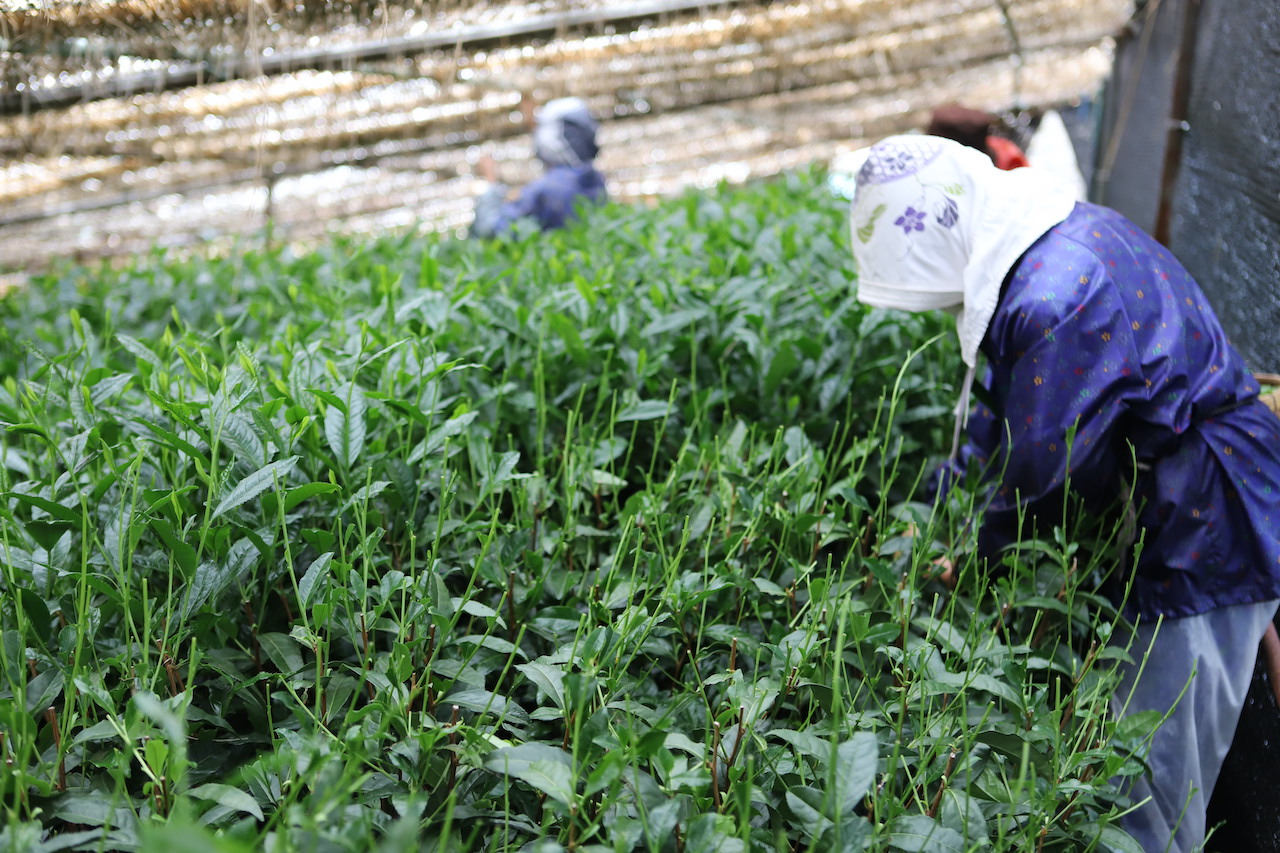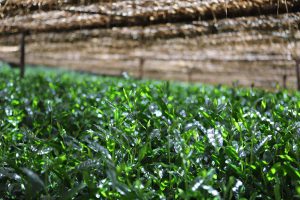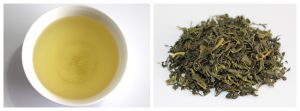MENU
MENU
Benefits of Tea
Benefits of Tea 5 “Amino acids”

Professor Yoriyuki Nakamura of the University of Shizuoka wrote the original article in Japanese, which CHAMART translated into English.
Tea contains about 20 types of amino acids, which form the basis of its umami, sweetness, and sourness, of which more than 50% are accounted for by theanine which is unique to tea.
Five types of amino acids, glutamic acid, aspartic acid, arginine, serine, and theanine, account for more than 90% of the total amino acids.
Generally, amino acid content tends to be higher in Chinese type (Camellia sinensis var. sinensis) and lower in Assam type (Camellia sinensis var. assamica). Also, the softer and younger the tea bud and the younger the leaves, the higher the amino acid content.
By covering the tea gardens of tencha (raw material of matcha) and gyokuro with mats, the plant’s metabolic system is stimulated, increasing the amino acid content in the tea leaves. Consequently, tencha and gyokuro include a lot of umami.

Gyokuro tea garden covered by komo (straw mats)
Fujieda City, Shizuoka (April 2021)
Theanine, an amino acid unique to tea, has anti-stress effects, lowers blood pressure, regulates brain and nerve function, prevents vascular dementia, and inhibits hepatoma cell infiltration.
Gabaron tea is made by placing tea leaves under anaerobic conditions filled with nitrogen gas and carbon dioxide gas and using the action of glutamic acid decarboxylase to produce and accumulate gamma-aminobutyric acid from glutamic acid. Gabaron tea has attracted attention because the tea has the effect of lowering blood pressure.

Gabaron tea
Writer’s Profile
Yoriyuki Nakamura
Specially-appointed professor, Director of the Tea Science Center, University of Shizuoka
https://dfns.u-shizuoka-ken.ac.jp/labs/tsc/index.html
Awards and commendations
2016 Awarded as Japanese Tea Industry Achievement Award: Popularization of tea varieties and pot seedling cultivation techniques
2015 Awarded as O-CHA Pioneer Award of academic research section: Tea breeding technology and Variety development
2013 Awarded as Tea Industry Technology Merit Award: Efforts in tea industry technology
2013 Awarded as Sugiyama Hikosaburo Tea Technology Award: Developing tea variety
2013 Awarded as Tea Academic Research Award: Tea breeding and tea propagation technology
Related article on the site:
Benefits of Tea 1 “Tea has long been a powerful elixir with abundant benefits!”
Benefits of Tea 2 “Functional ingredient of Tea”
Benefits of Tea 3 “Major components of tea”
Benefits of Tea 4 “Catechins”
Benefits of Tea 5 “Amino acids”
Benefits of Tea 6 “Caffeine”
Benefits of Tea 7 “Vitamins”
CATEGORY